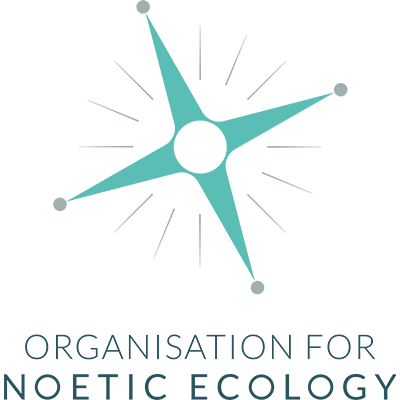RE.WILD.ED
Place-Based Learning for Youth
Welcome to “Place School”! We’re excited to be offering this experiential nature-based learning programme for youth.
Why:
- To help your child deepen their connection with nature, awaken curiosity, build confidence in their physical awareness.
- To cultivate lifelong skills ( ‘allies’): attentive observation, resilience and empathy
- To foster rootedness and belonging in this place called Plett and nurture a love for life.
Who: For 7 -12 years (older groups available on request), facilitated by Matthew Zylstra and Kieren Whitley
When: Weekly 2-hr outdoor sessions, 15:00 – 17:00
Where: Brackenburn Nature Reserve, The Crags (and Kwendalo, Plettenberg Bay (TBC))
What: A nature-centred ‘enrichment’ programme aligned to South African CAPS (Life Skills, Natural Sciences, Geography, Language)
How: We guide children on a journey into nature mystery: a way which nurtures deeper nature connection, ecological awareness, and place-based belonging. The programme helps children build meaningful relationships with the land while developing core ‘whole child’ competencies in observation, questioning and reflection.
Each session includes play-based learning, hands-on activities, storytelling, quiet nature time and sharing experience, while fostering care for life and a sense of belonging. While having fun… to ignite the delight with the natural world!
We are attentive to children’s ‘spark’ and cultivate that – following their curiosity, passion and creativity. We adapt our approach and encourage a process of co-learning as students of life.
Learning Themes
Weekly themes include but are not limited to:
- Attentive Observation & Sensory Awareness
- Animal Tracking & Behaviour
- Plant & Tree Recognition / Sketching
- Natural Hazards & Survival Skills (incl. Foraging)
- Bird Identification & Bird Language
- Seasonal & Celestial Cycles (incl. Natural Navigation)
- Stewardship, Creativity and Celebration
Core Practices
Our programme seeks to integrate the core routines essential to lifelong nature connection:
- Sensory Expansions: Building awareness through blindfold walks, sound mapping and nature immersion
- Animal Forms: Mimicking animal movement, posture and behaviuor during sensory and tracking games
- Bird Language: Understanding ecological soundscapes through attentive attuning, bird call games and mimicry
- Tracking: Mystery-solving through animal track & sign identification, questioning and curiosity
- Field Guides: Introducing local trees, birds, and tracks through sketching and field guide ID activities
- Wandering: Strengthening the art of noticing and sense of place through guided and unguided wandering
- Mapping: Creating personal memory maps, soundscapes, and ‘secret’ paths / trails based on observations
- Sit Spot: Cultivating stillness, attentiveness and inner calm through regular solo time in a chosen area
- Story of the Day: Reflecting and sharing experiences through group storytelling circles and journals
- Journaling: Maintaining a nature journal with drawings, maps, sensory notes and, in time, reflective writing
- Survival Skills: Fire-making, shelter-building, and foraging – emphasising safety, stewardship and reciprocity
- Storyteller’s Mind: Visualising with the mind’s eye and nurturing creativity through guided imagery and role-playing
- Thanksgiving: Offering gratitude and reverence for earth and sky through stories, daily activities and ‘ceremonies’
- Patterns of Place: Recognising new patterns as we rediscover a relationship with place – a place that equally responds to our presence, attentiveness and ways of being
What it is not
- It is not an actual ‘school’, but rather after-school ‘enrichment’ that seeks to find synergy with school-based learning
- It is not scouts, but there may be similar skills learned albeit in a different kind of way
- It is not beholden to a particular belief system, but does respect an idea of an ‘animate earth’ where humans are part of nature
- It is not childcare – we encourage kids to attend because they want to be there and we welcome parents input and involvement
- It is not environmental indoctrination, but rather a fresh opening into a lifelong journey of curiosity, connection and wonder of nature’s marvels.
RE.WILD.ED supports CAPS outcomes while reconnecting children with the rhythms, stories, and wisdom of the natural world. It is inspired and influenced by the lineage of Jon Young (as found in the Kamana Naturalist Training Programme and the Coyote’s Guide to Connecting with Nature).
About the Facilitators
Matthew Zylstra, PhD is an ecologist and nature connection practitioner passionate about meaningful experience and rewilding our relationship with earth – for the health of people and planet. Matthew’s doctorate research through Stellenbosch University (2014) explored the role of meaningful experiences and nature connectedness in transformative learning and pro-environmental behaviour. Matthew has led international undergraduate conservation field-study programmes for over 10 years, facilitated outdoor experiences for over 15 years and has a keen interest in practices for enhancing our awareness, belonging and connectedness with place.
RE.WILD.ED weaves in training Matthew has received in Kamana Naturalist, Coyote Mentoring (8Shields), Biomimicry, Cybertracker Track & Sign, and Spirit of the Wild facilitation. He has a Level 2 First Aid qualification. Matthew is Programme Director for the Kwendalo Institute, Scientific Advisor to NatureFix and Research Associate with CST-Stellenbosch University.

Course Details





